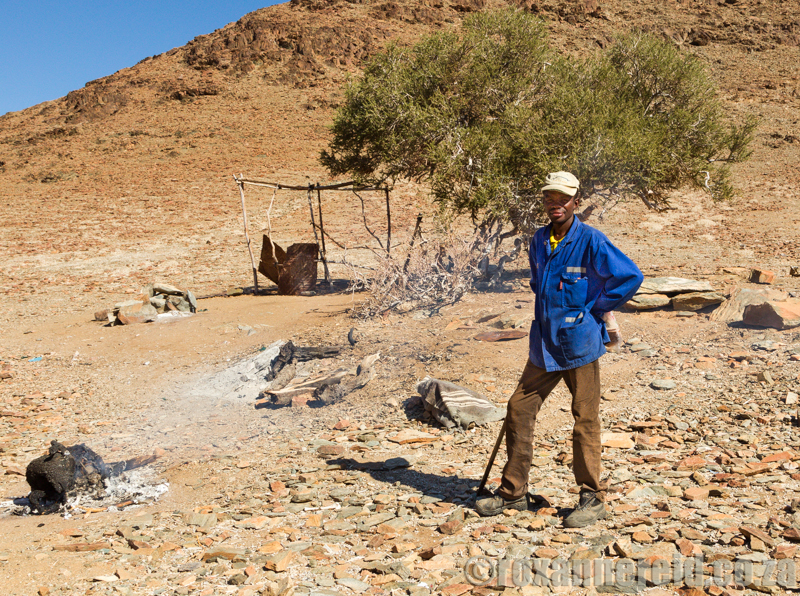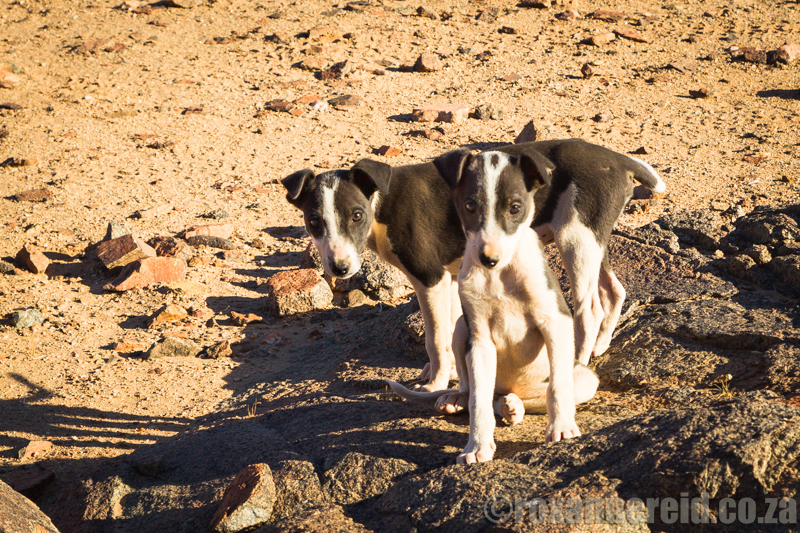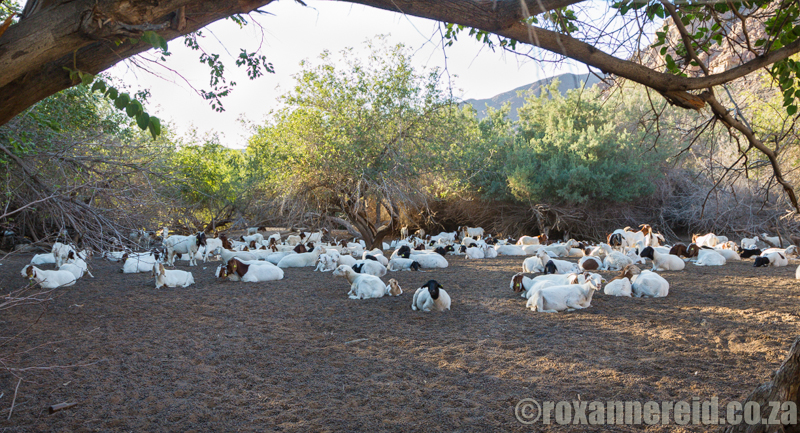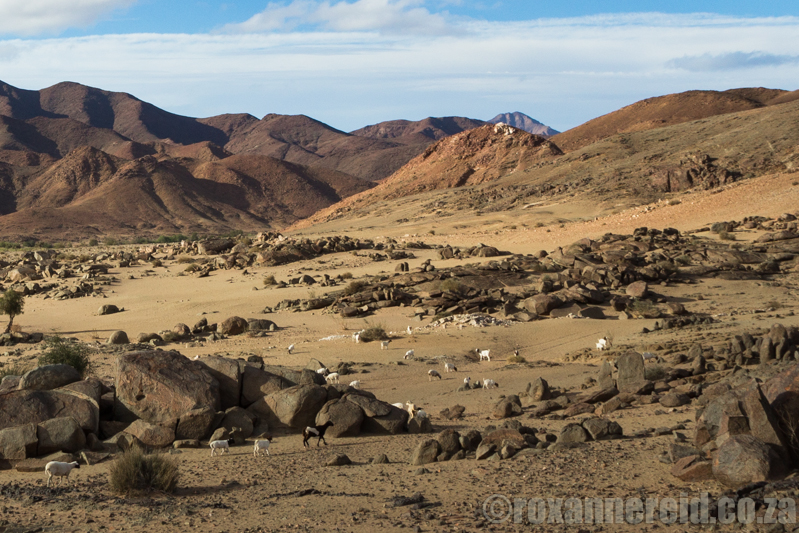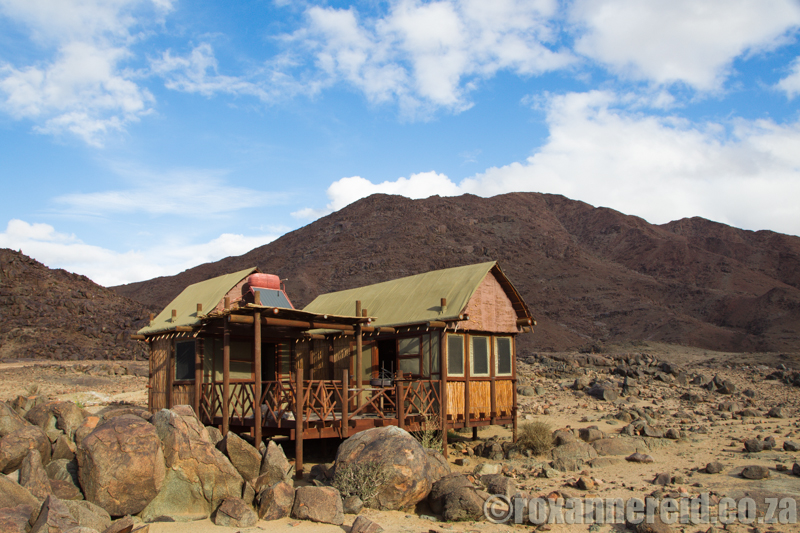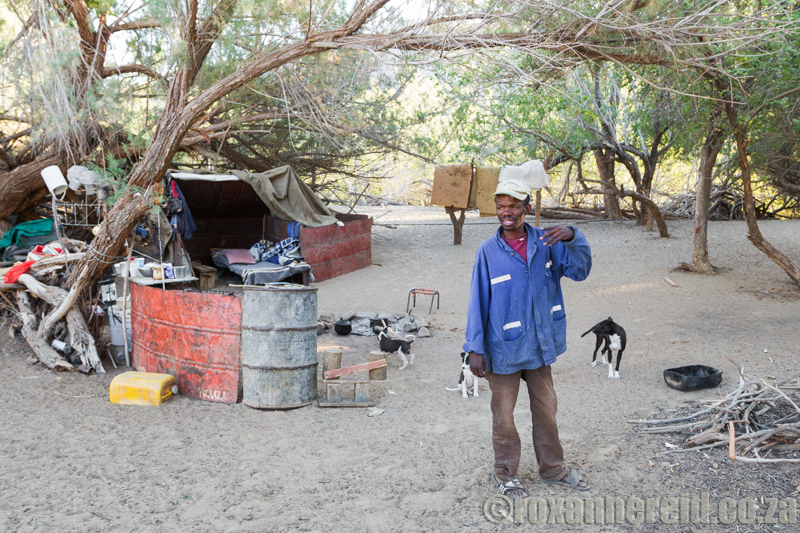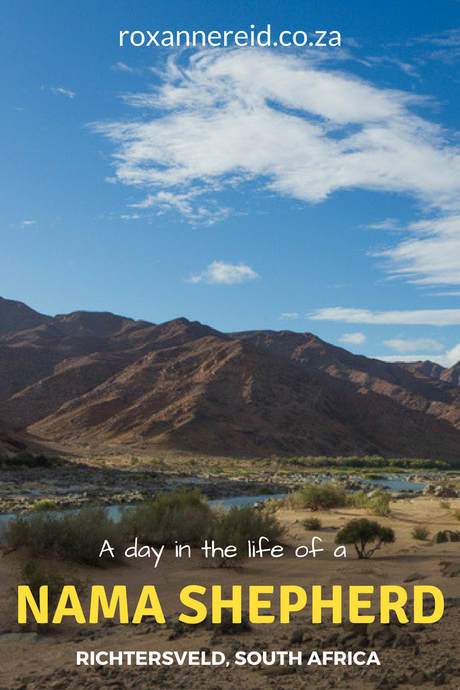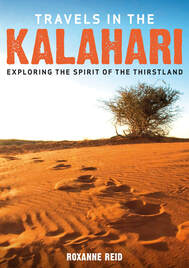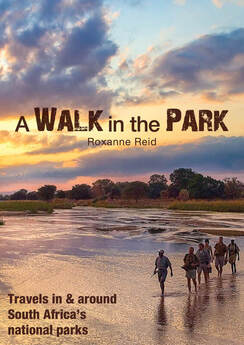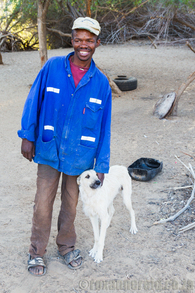
The Richtersveld, in the far north-west of the Northern Cape, is the only true mountain desert in southern Africa. It’s remote and inhospitable, so when a Nama shepherd you’ve stopped to talk to asks for some water, you can’t say no.
The goat had died of krimpsiekte after eating a poisonous plant – evidence in this arid region of how animals struggle to find enough to eat.
‘I can feed it to the dogs,’ he explained as we stood around the smoking fire near a witgat (shepherd’s tree) that was providing shade for the dogs on what was a hot
afternoon, even in mid-winter.
It seemed a rough life and lonely too.
‘Yes,’ he admitted, ‘it gets very lonely, but I have my dogs. They’re my best friends.’
The Richtersveld is one of the last places in the country where you can still find traditional semi-nomadic stock farmers. It might seem strange that they graze their flocks of goats and sheep inside the borders of a national park, but in fact the local communities own the land, which they lease to SANParks and manage jointly. The 30-year contract is up for renewal in six years.
In the dry season, when there’s a shortage of suitable food, they graze their flocks along the Orange River. In the rainy season, they move inland. If indeed the term ‘rainy season’ can be applied to a desert that can get as little as 40 millimetres of rain. (One heavy downpour in suburban Cape Town can double that in a single day!)
A saving grace is that moisture also comes in the form of early morning fog that rolls in from the Atlantic Ocean. Called malmokkie in these parts, it’s a more reliable source of moisture than the rainfall.
Later, the park’s camp manager Hendrik Prins told us about another shepherd, an old man with a disabled leg, who had been having trouble with a leopard that was showing more than a passing interest in stock he was looking after. Park management removed the shepherd to safety.
‘What about my stock?’ the furious stock owner demanded.
Certainly, each goat or sheep has some monetary value, but what value can you place on a man’s life?
A 40-gallon drum had been snipped open to provide a makeshift windbreak together with some interlocking tree branches. A bowl and a piece of fire-baked bread sat on a rickety table, saved for another meal. Two enamel cups and five plastic jugs hung in a tree, and to the side was a simple pallet with a grayish-blue blanket.
Matthew explained how he trains the sheep to come back to the pen when he cracks his whip. Crack, put them in the pen; crack, put them in the pen. Eventually,
they can be foraging high up on a mountain but as soon as they hear him crack the whip they turn and start for ‘home’.
We gave him another small bag of provisions and he thanked us with a broad smile.
‘Do you have some sugar? I like to put it into hot water to make a drink,’ he explained, not even daring to dream of tea or coffee.
Next time you venture into the Richtersveld, stop and talk to one of the Nama shepherds you’ll probably see along the way. (It helps if you speak Afrikaans.)
You’ll be amazed at what you’ll learn. And what pleasure your small gift of food will bring to a hard and lonely life.
Like it? Pin this image!
Copyright © Roxanne Reid - No words or photographs on this site may be used without permission from roxannereid.co.za.
